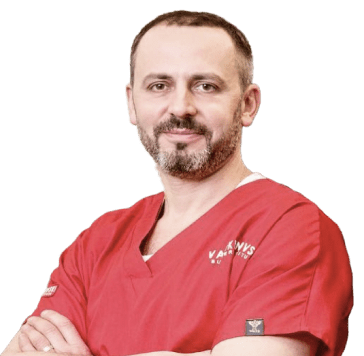


Oncology is a branch of clinical medicine whose main task is to identify and eliminate related pathological conditions, in particular, tumors and their metastases of various localizations that have led to a significant impairment of vital functions.
Severe complications of tumors and their metastases. Сritical conditions that accompany tumor diseases – bleeding (may develop as a result of tumor damage to the integrity of the blood vessel wall), tumor decay (which may result in infection, circulatory disorders, bleeding, tumor spread, toxic effects on the nervous system, etc.), severe complications of tumors and their metastases, etc.
Surgical intervention for neoplasms (tumors) involves providing surgical care to the patient and physical removal of the causative tumor during surgery, surgical treatment of acute conditions that accompany oncological pathology and cause a critical condition.
Timely and properly provided emergency medical care allows patients to return to normal life and maintain or restore its quality.





If needed, our doctors provide consultations not only in Ukraine but also worldwide, both at our clinic in Kyiv and online through prior appointments. Comprehensive diagnostics, treatment, and prevention are offered.
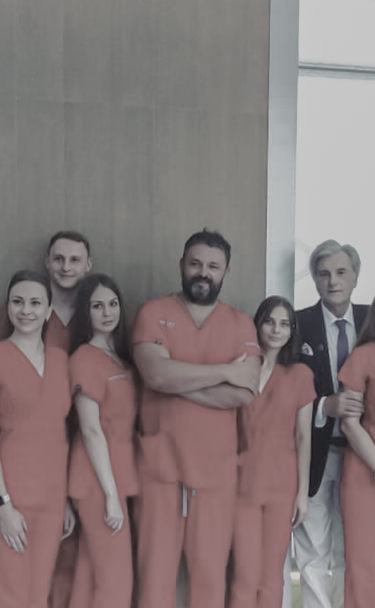
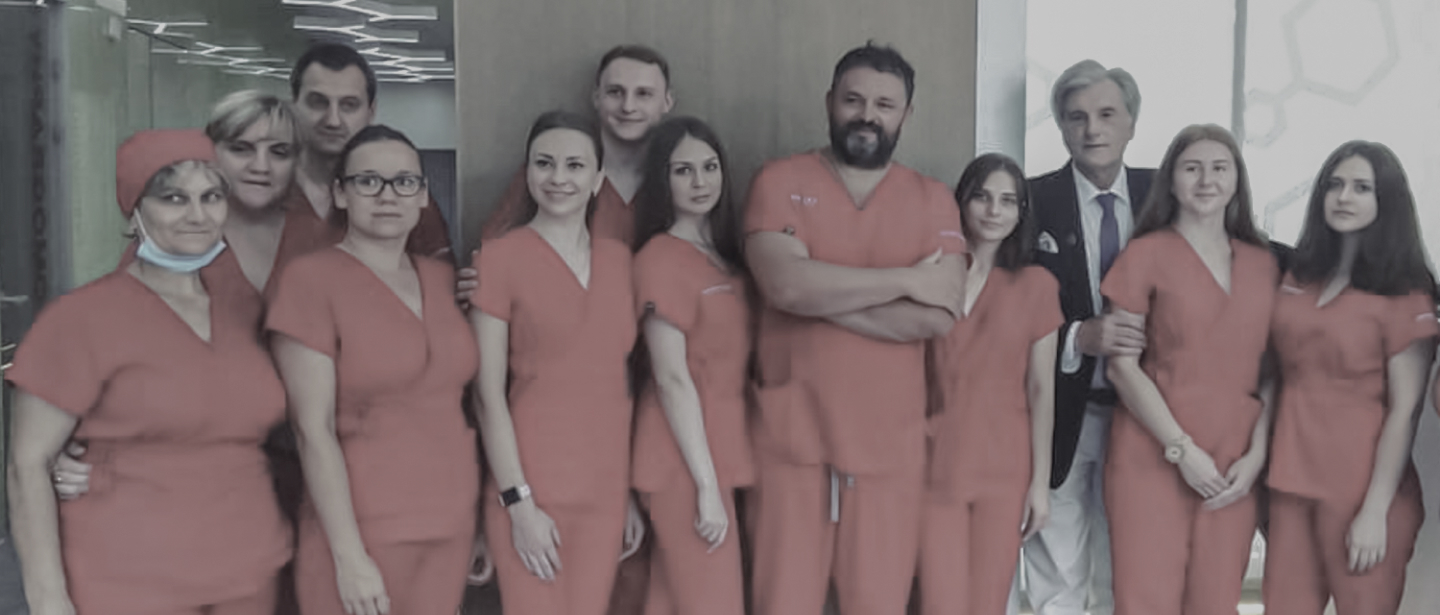
Years of experience
Patients
A modern clinic in the center
Successful operations
Unique surgical techniques
Branch of surgery
Units of the latest equipment
Charitable surgical assistance
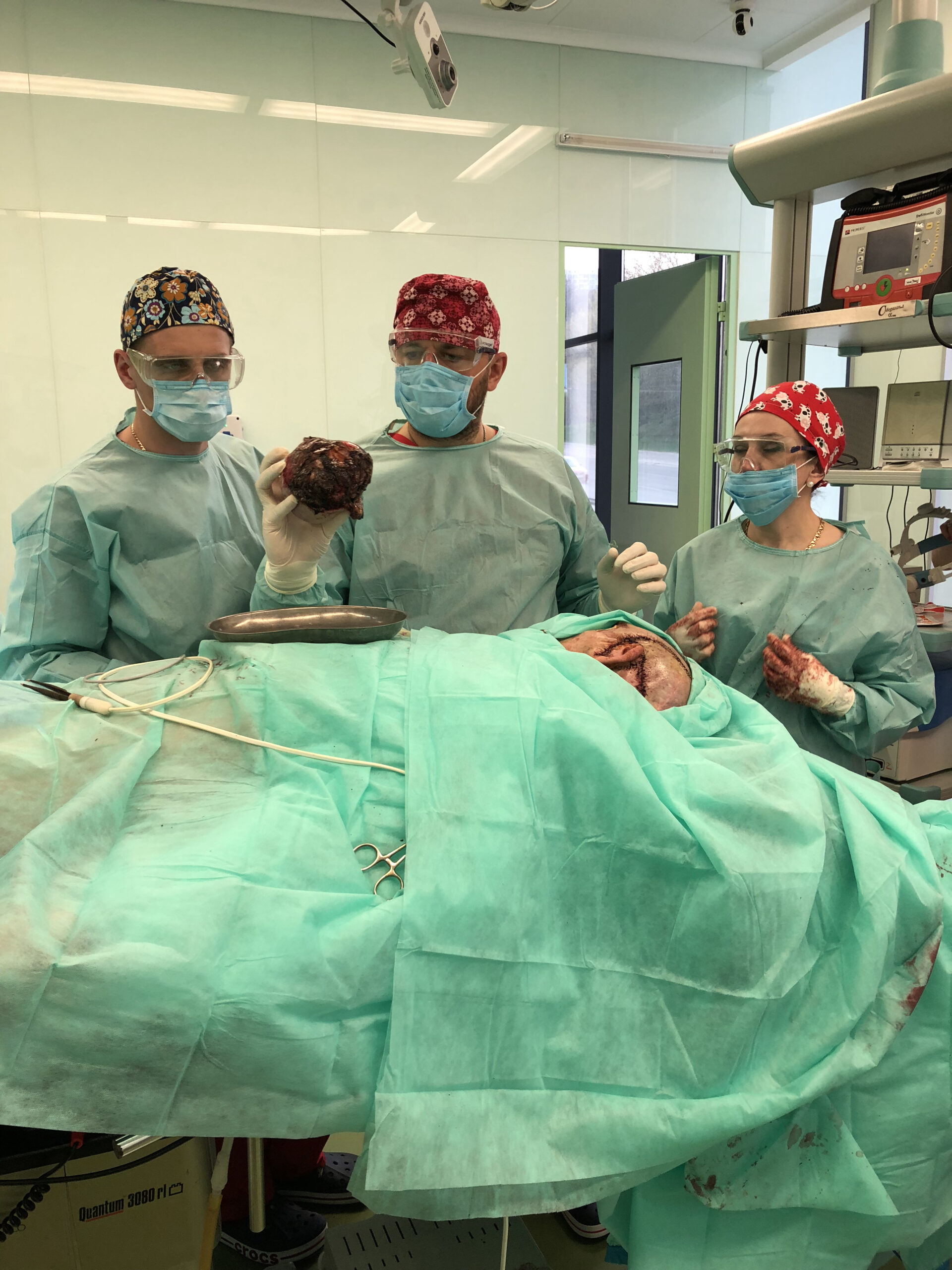
You should promptly consult regarding oncological surgery if you experience the following symptoms:



An consultation in oncological surgery includes:


interview (the doctor asks about complaints, learns about medical history and life);
external clinical assessment (the patient will be thoroughly examined, palpated, all altered areas and the condition of each organ system will be examined)
laboratory examination (both general clinical tests and special tests);
instrumental examination (to determine both the general condition of the body and those areas where changes have developed);
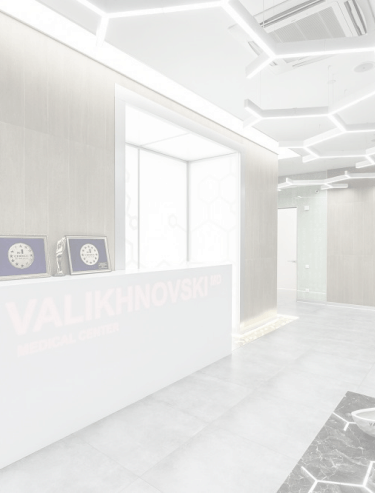

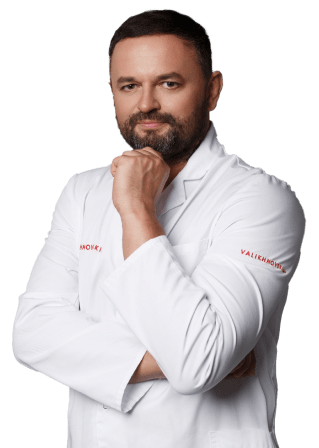






in case of taking any medications, inform the doctor and agree with him/her (it may be necessary to limit them or change the dosage, regimen)
for several days before the operation, follow a sparing diet, water and drinking regimen; if you have constipation, take laxatives, use enemas and do not drink alcoholic beverages - so that the body reacts more adequately and predictably to anesthesia and other drugs
refrain from eating for 6-12 hours before the surgery, and 2-4 hours before the surgery do not drink, chew gum, smoke - to protect against the ingestion of stomach contents into the respiratory system during anesthesia
on the day of surgery, take a shower, cleanse the intestines with an enema to prevent spontaneous passage of feces during anesthesia due to sphincter relaxation
immediately before the operation –
- removable objects (piercing jewelry, dentures) are removed from the mouth and face so that they do not accidentally get into the respiratory system or interfere with the surgical intervention during the operation
- remove other items (contact lenses, hearing aids, jewelry.) to prevent accidental injury to the body and to prevent them from getting damaged
- remove cosmetics (makeup, nail polish, false nails) from the body to facilitate visual assessment of the body's condition and automated registration with medical equipment
- empty the bladder and, if necessary, the intestines to prevent spontaneous bowel movements during anesthesia
- change into special clothes provided by the clinic.
other preparatory measures can be taken in addition, taking into account individual characteristics of the body and the specifics of the surgical intervention

The main stages:
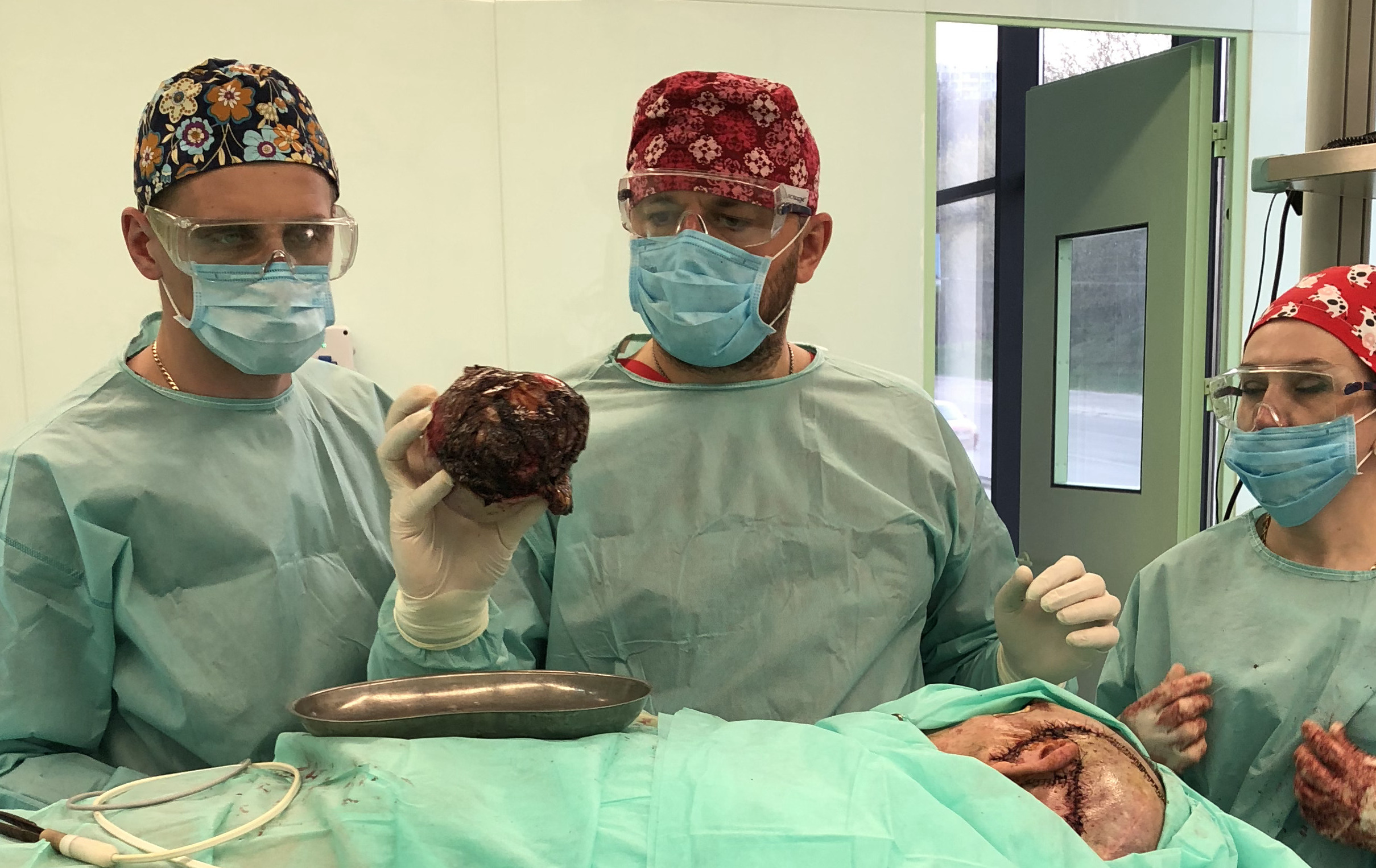


or escorted on foot. At the gateway, they put on a medical cap and shoe covers (to protect against microorganisms in the air of the operating room).
by an operating team of a certain composition, taking into account the specifics of each operation.
(depending on the specifics of the operation, the body position may differ), and fixed to it with special straps to prevent accidental involuntary movements that would interfere with the operation, as well as to prevent accidental falling of the body from the table.
punctures a vein in the arm, installs a catheter to administer the necessary drugs, places electrodes on the body to monitor the electrical activity of the heart, puts a blood pressure cuff on the shoulder and a sensor on the finger to determine the oxygen content in the blood. All this is necessary for continuous monitoring of the body's condition during anesthesia and surgery.
the area of the body where the intervention is performed, and the specifics of the chosen surgical tactics, technique, etc.
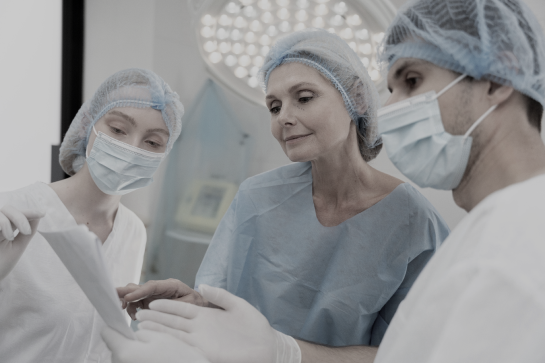
After the operation, the patient wakes up in the ward for postoperative observation. If necessary, oxygen may be administered through a thin tube to ensure that the body has enough oxygen. The nurse will carefully monitor the patient’s condition and, if necessary, use medications agreed with the doctor.
Before returning home, the doctor will examine the postoperative sutures, agree on the tactics of further rehabilitation, and give additional advice.






An oncosurgeon deals with the surgical treatment of tumor diseases, which includes removing tumors, performing biopsies for diagnosis, reconstructive surgery after tumor removal, palliative surgery to relieve symptoms in cases of incurable cancer, and preventive surgery for high risk of developing cancer. The oncosurgeon also collaborates with oncologists, radiologists, chemotherapists, and other specialists for a comprehensive approach to treatment and provides advice and support to patients on treatment options and recovery strategies. The specialist can not only restore the functionality lost due to a pathological condition, but also recreate the appearance.
A visit to an oncologist is recommended in case of the following symptoms Rapid weight loss, feeling of constant fatigue and weakness, problems with swallowing, slightly elevated body temperature, changes in the frequency and consistency of urination, the appearance of hard masses under the skin or inside organs, persistent pain in any part of the body, changes in eating habits, digestion and bowel movements, prolonged cough and hoarseness for no apparent reason swelling and bruising that does not go away for a long time, bleeding or unusual discharge from different parts of the body, changes in the skin and mucous membranes, including new growths, spots or wounds that do not heal, sharp pain of various localizations, bleeding from the tumor site, increasing inflammation around the tumor, rapid dysfunction of the nervous system, breathing and heart problems. These symptoms may indicate a possible cancer that requires timely diagnosis and surgical treatment.
Common signs of malignancy of tumors are: loss of functions of cells that they performed before; unrestrained growth and spread to surrounding tissues, as well as with the flow of lymph and blood – throughout the body (metastasis), dysfunction of the original organ, and others. If tumors are localized on the head and neck, this is especially dangerous due to the close proximity of the brain, whose tumor lesion is life-threatening.
The warranty for surgical treatment of oncological diseases covers implants and other medical consumables and equipment. It guarantees the provision of surgical treatment services in accordance with modern medical advances, the high level of qualification of the clinic’s specialists and the technical equipment of the clinic. The final clinical effect is influenced by many factors that depend not only on the doctor and the clinic, such as individual characteristics of the body, lifestyle, environmental circumstances, and stress factors.
Preparation for oncological surgery includes a preliminary examination and consultation with a surgeon, a comprehensive examination with photo and video analysis of appearance, anthropometry, consultation with related specialists (if necessary), etc. Immediately before surgery, the principles of preparation do not differ significantly from those generally accepted in surgery.
Possible complications after oncosurgical operations include general surgical complications (bleeding and thrombosis, infectious and inflammatory conditions) and more specific to this particular area (postoperative defects, recurrence, etc.). Careful preparation for the operation, highly qualified experienced medical staff, modern high-tech equipment and coordinated work of the team of doctors and other clinic staff minimize the risks of complications.
Contraindications to oncological surgery are conditions whose severity critically increases the risks of surgical treatment, such as infectious, mental, gastrointestinal diseases, etc.


